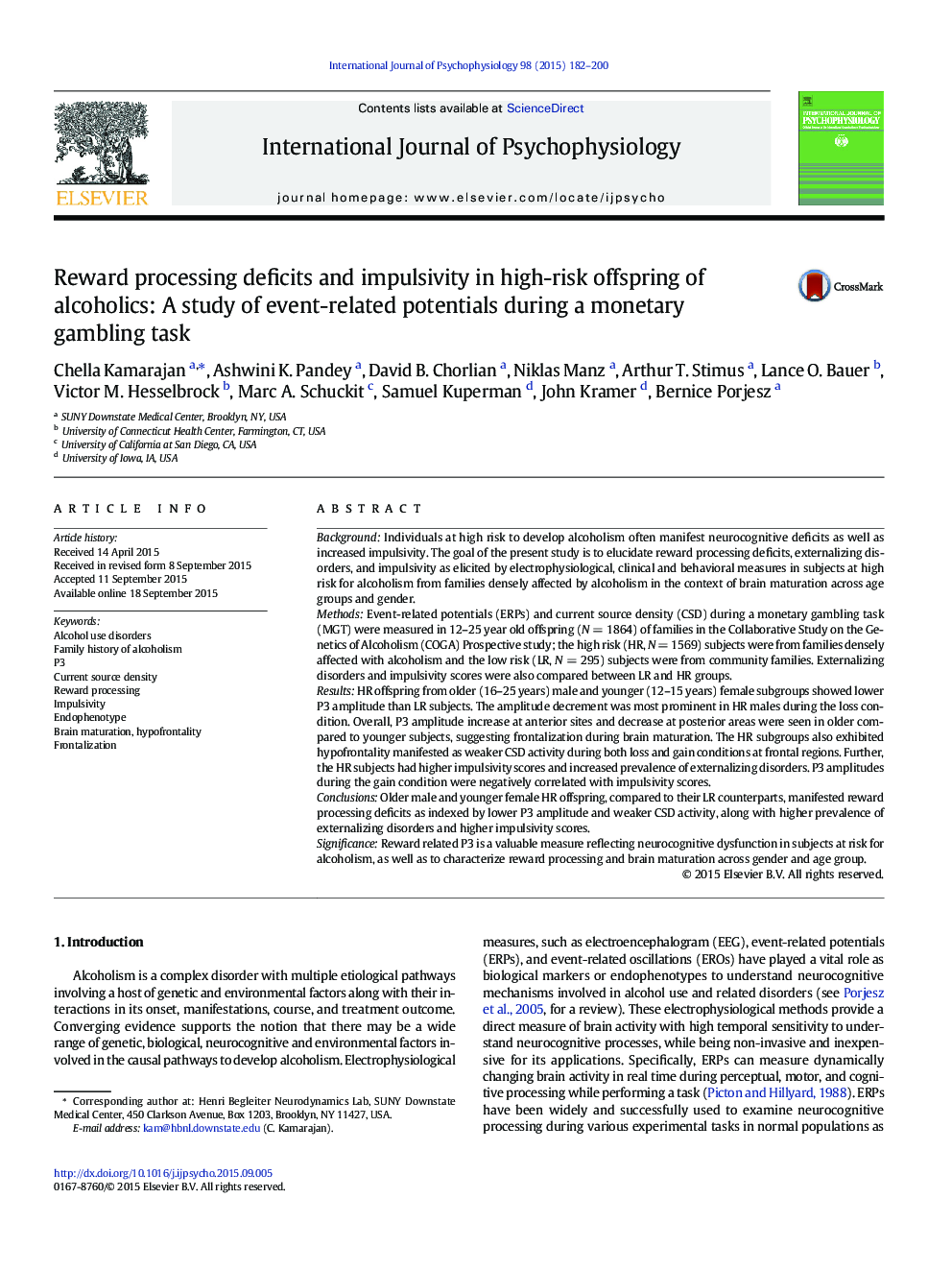| کد مقاله | کد نشریه | سال انتشار | مقاله انگلیسی | نسخه تمام متن |
|---|---|---|---|---|
| 929822 | 1474401 | 2015 | 19 صفحه PDF | دانلود رایگان |
• Individuals at high risk (HR) to develop alcoholism manifest neurocognitive deficits.
• ERPs, impulsivity and externalizing diagnoses were assessed.
• HR offspring displayed lower P3 amplitude and weaker current source density.
• HR offspring also showed increased impulsivity and externalizing features.
• Reward related P3 can be an endophenotype for alcoholism and related disorders.
BackgroundIndividuals at high risk to develop alcoholism often manifest neurocognitive deficits as well as increased impulsivity. The goal of the present study is to elucidate reward processing deficits, externalizing disorders, and impulsivity as elicited by electrophysiological, clinical and behavioral measures in subjects at high risk for alcoholism from families densely affected by alcoholism in the context of brain maturation across age groups and gender.MethodsEvent-related potentials (ERPs) and current source density (CSD) during a monetary gambling task (MGT) were measured in 12–25 year old offspring (N = 1864) of families in the Collaborative Study on the Genetics of Alcoholism (COGA) Prospective study; the high risk (HR, N = 1569) subjects were from families densely affected with alcoholism and the low risk (LR, N = 295) subjects were from community families. Externalizing disorders and impulsivity scores were also compared between LR and HR groups.ResultsHR offspring from older (16–25 years) male and younger (12–15 years) female subgroups showed lower P3 amplitude than LR subjects. The amplitude decrement was most prominent in HR males during the loss condition. Overall, P3 amplitude increase at anterior sites and decrease at posterior areas were seen in older compared to younger subjects, suggesting frontalization during brain maturation. The HR subgroups also exhibited hypofrontality manifested as weaker CSD activity during both loss and gain conditions at frontal regions. Further, the HR subjects had higher impulsivity scores and increased prevalence of externalizing disorders. P3 amplitudes during the gain condition were negatively correlated with impulsivity scores.ConclusionsOlder male and younger female HR offspring, compared to their LR counterparts, manifested reward processing deficits as indexed by lower P3 amplitude and weaker CSD activity, along with higher prevalence of externalizing disorders and higher impulsivity scores.SignificanceReward related P3 is a valuable measure reflecting neurocognitive dysfunction in subjects at risk for alcoholism, as well as to characterize reward processing and brain maturation across gender and age group.
Journal: International Journal of Psychophysiology - Volume 98, Issue 2, Part 1, November 2015, Pages 182–200
